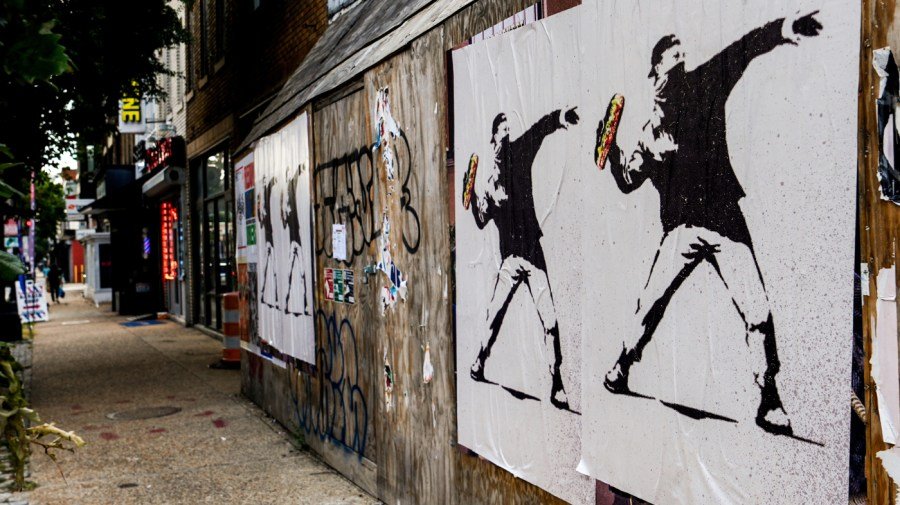
You remember the case of the sandwich man. He’s the 37-year-old former Department of Justice paralegal, Sean Dunn, who was captured on video throwing a salami sub straight at the buff chest of a federal agent. Dunn was protesting the deployment of National Guard troops on the streets of the nation’s capital.
When I was in college, more years ago than I care to remember, the sandwich du jour was called a “Hero.” And, if I were president, I would rename all salami subs “Heroes” in Dunn’s honor. After all, Trump renamed the Gulf of Mexico the Gulf of America and it appears that being president gives you unbounded naming opportunities.
Jeanine Pirro, the U.S. attorney for the District of Columbia, initially sought a felony indictment against Dunn for assaulting a federal agent — an offense which can carry a penalty of up to eight years in prison.
It is said that a prosecutor can get a grand jury to indict a ham sandwich. But despite the reputation of grand juries as rubber stamps for the prosecution, a Washington federal grand jury refused to indict Dunn. Pirro had to refile the case as a misdemeanor, which does not require grand jury approval and carries a penalty of no more than a year.
It is notable that the trial began on Nov. 3, National Sandwich Day. The day commemorates the unofficial birthday of John Montagu, 4th Earl of Sandwich, an 18th-century English aristocrat.
Lord Sandwich, during long sessions of cribbage and other card games at public gambling houses, would order his valet to bring him roast beef between two pieces of toasted bread. He was fond of this meal — later the “sandwich” — because it allowed him to continue gambling while eating, without the need for a fork, and without getting his cards greasy from eating meat with his bare hands.
Unfortunately, there is no historical basis for naming a sub after an Earl of Salami.
The complaint alleged that Dunn was “within inches of” a Customs and Border Patrol agent when he “pointed his finger” at him “and yelled, ‘F**k you! You fu**ing fascists! Why are you here? I don’t want you in my city!’” It says Dunn “continued his vituperative conduct for several minutes before crossing the street and continuing to yell obscenities” at the agent.
Most defendants take the position, “I didn’t do it” Dunn’s attorney began the trial with an unorthodox defense: “He did it. He threw the sandwich.” The lawyer characterized the heave as “an exclamation mark at the end of a verbal outburst.” Cyrano de Bergerac could have called it “a dot on the eye of loving.”
The testimony was out of Saturday Night Live. The officer Dunn was charged with assaulting said he could feel the impact of the sandwich through his ballistic vest, and it “exploded all over my chest.” He stated he could “smell the onions and the mustard.” Must have been one great smell.
The defense lawyer pointed to the video, however, and reportedly said to the jury “You don’t see there’s mustard on it?” “You can’t tell there’s ketchup on it? Mayonnaise? Lettuce? Tomato? In fact, that sandwich hasn’t exploded at all.” Looks like the prosecutor was hoist with his own petard.
The good news is that Dunn was acquitted. The bad news is that the case was brought at all. The acquittal came about because of jury nullification, which occurs when a jury acquits a defendant despite sufficient evidence to establish guilt because they feel the prosecution is unjust.
While not a legally sanctioned right and generally not encouraged by judges, juries can exercise this power by returning, in the case of a petit jury, a “not guilty” verdict, which cannot be overturned.
This serves as a check on the legal system, allowing juries to express moral disagreement with laws they believe are unjust, discriminatory or overly harsh. Sometimes, a jury might feel a generally valid law is misapplied or results in an unjust outcome for the defendant.
Jury nullification was prevalent during the pre-Civil War period. A classic example would be the acquittal of abolitionist defendants who aided escaped slaves.
It is an important check on government abuse of power. Today, it may be one of the few guardrails on democracy remaining in our legal system.
After Dunn’s acquittal, Pirro said, “As always, we accept a jury’s verdict; that is the system within which we function. However, law enforcement should never be subjected to assault, no matter how minor.”
You can’t make it up.
James D. Zirin, author and legal analyst, is a former federal prosecutor in New York’s Southern District. He is also the host of the public television talk show and podcast Conversations with Jim Zirin.


